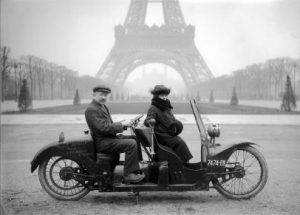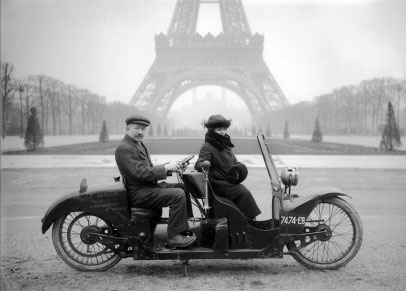 To Mary Williams Winslow
To Mary Williams Winslow
C/o Brown Shipley & Co. 123 Pall Mall, S.W.1.
Nice, France. November 16, 1922
I spent the summer very pleasantly in Paris, working on the above-mentioned volume. I wasn’t at Strong’s; because his daughter Margaret was about, and the apartment is too small for three, a maid, a dog, and ten thousand hat-boxes. I found a quiet cool hotel near the Palais Royal, and lived there in a top room like a true philosopher, dining every evening with the Strongs. They are my most constant link with human affairs. Strong himself, in spite of his lameness, has developed a new geniality (in every sense of this word) composes fables, reads the Latin classics, travels by motor, builds baroque staircases in his garden at Fiesole, and altogether plays the part of an opulent man of letters of the eighteenth century. It is a great satisfaction to me to see him so happy, in spite of his physical infirmity, and to find him blooming intellectually in his old age after having been all his life rather cramped in expression and rigidly professional in his interests. I think the Anglo-American colony in Florence has had a great effect on him, and thawed him thoroughly. Perhaps he has also caught from me the idea that a serious philosopher may be playful on occasion. He has just been to Rome in his motor with his architect, who is an invaluable friend and fac-totum, and I expect he will turn up here later in the winter. I have not wanted to go to Italy nor to Spain this year, because I want to finish the big book—and turn to the novel! When that comes on the tapis, if I am as well as I am now, I shall go the rounds again to Avila, Seville, Rome, Fiesole, Venice, etc, because those scenes will not distract me from the fun which I shall be having. Composing a system of philosophy is not such an easy matter, and when once the thread of interest and the momentum of the argument are lost it is sometimes weeks before the engine can be made to run again properly. Therefore I need absolute solitude, such as I have here—that is, solitude in casinos, cafés, restaurants, theatres, and rambles in the midst of swarms of idlers, villas, motors, and palm-trees. But to return to the Strongs: there is the question of Margaret. Everybody (including herself) wants her to get married, and she has plenty of suitors and of money; but somehow she doesn’t make up her mind. This prolonged coyness on her part has a curious effect on the lives of two elderly philosophers, her father and myself, because it keeps us both waiting with one foot in the air, until (she having established herself) we may know where to set it down. I for my part should like to settle down somewhere for the rest of my days; but I don’t like to go to England, for instance, and leave Strong altogether; and yet I can’t live with him while she is about, because then I feel I am staying in a rich man’s house, and not sharing rooms with a fellow-student—which is the sort of existence that Strong and I affect when we are alone
From The Letters of George Santayana: Book Three, 1921-1927. Cambridge, MA: The MIT Press, 2002.
Location of manuscript: The Houghton Library, Harvard University, Cambridge MA.
